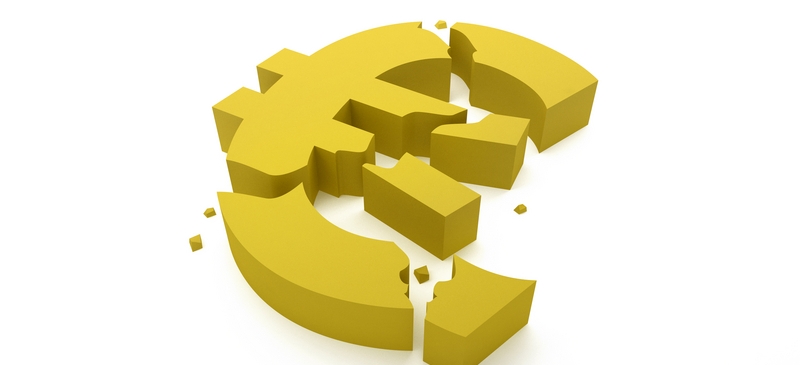
Only a Franco-German bargain can save the euro
Merkel and Hollande don't trust each other, but they must find a way of working together – and the markets may not wait long.
How long can Angela Merkel resist the mounting pressure on her to shift her stance on the euro? Not only France, Italy and Spain, but also the European commission, the IMF and the Obama administration are urging Germany to accept eurobonds (collective eurozone borrowing), bigger bailout funds to intervene in sovereign bond markets and a banking union, which would include common deposit insurance and bank recapitalisation schemes. For now, however, the lady is not for turning. When EU leaders meet in Brussels on 28 and 29 June, they are unlikely to agree on the concrete steps that would convince financial markets they were serious about saving the euro.
According to one EU official who has worked closely with Merkel, she reacts badly when other governments gang up against her: recent public criticism from François Hollande, the French president, and Mario Monti, the Italian prime minister, has only made her more stubborn. But the official points out that since the euro crisis began she has carried out several U-turns (for example, by agreeing to set up bailout funds). She has also told her fellow leaders that the euro is in Germany's national interest and that if, in a crisis, new measures are required, she will take them. What she will not do is spell out in public the steps she is prepared to take, lest that encourage other governments to relax their efforts to curb budget deficits and enact reforms.
When Merkel says that she will do whatever it takes to save the euro, she is presumably sincere. But in a crisis would she be able to move quickly enough? She faces severe domestic political constraints. Many Bundestag members oppose greater generosity to southern Europe. In that they reflect German public opinion, which is becoming more hostile to bailouts. Furthermore, Germany's constitutional court could block further transfers of power to the European Union.
Not unreasonably, most Germans are reluctant to support schemes such as eurobonds unless other eurozone countries are willing to submit their economic policies to more control by EU institutions. Otherwise the southern Europeans could borrow cheaply via eurobonds and then spend, spend, spend. Monti and Mariano Rajoy, the Spanish prime minister, are willing to accept more EU control. But Hollande shows no signs of wanting to do so.
In fact, Hollande's current policies are making it hard for Germany to change its policies on the euro. He appears allergic to the kinds of structural economic reform that would boost France's waning competitiveness, such as deregulating labour markets (he is lowering the pension age while other European governments are raising it). Rather than trying to constrain state spending – which at 56% of GDP is the highest in the EU after Denmark – he is increasing it. A swath of new taxes on business is likely to discourage investment and thus stunt economic growth. And Hollande seems to be no more willing than Nicolas Sarkozy was to give the EU a bigger say over French budgetary policy.
The story of the euro, like that of the EU itself, is one of Franco-German bargaining. The current disconnection between Paris and Berlin is undermining the euro. In the long run the euro is not sustainable without a grand bargain between France and Germany. Germany will need to accept the principle of eurobonds, some sort of banking union, softer budgetary targets for the countries in difficulty, and the writing off of more of those countries' debts. In return France and the other euro countries will have to swallow both structural reforms that would enhance productivity and greater EU sway over budgets and other economic policies.
At the moment such a grand bargain is impossible, and not only because Paris and Berlin are far apart on policy. Merkel and Hollande do not trust each other. The history of Franco-German relations suggests that, even when two leaders initially get on badly (think of Jacques Chirac and Gerhard Schröder, or Nicolas Sarkozy and Angela Merkel), they eventually find a way of working together.
However, the financial markets may not wait. The next eurozone crisis could be imminent, perhaps provoked by a bank run in Spain or Italy, or those countries having to pay so much to borrow that they are effectively frozen out of the bond markets. Those who wish the euro well must hope that, in an emergency, Merkel and Holland will overcome their differences, act decisively and bring the other leaders along with them.
But electoral politics could still spoil the best efforts to salvage the euro. In the Netherlands, parties that oppose austerity at home as well as more money for bailouts could win September's general election. Monti's government, increasingly unpopular in Italy, could fall long before the elections that are due next spring. Many things could go wrong but, if France and Germany work together, the euro has a sporting chance of survival.
